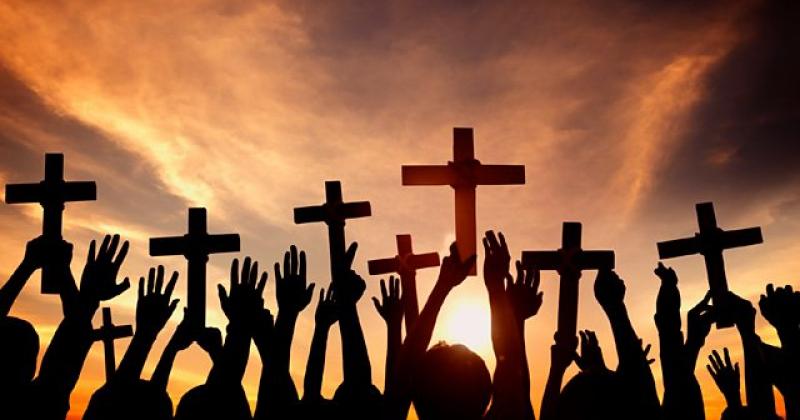Over the years, Christian unity has been one of the cardinal and major aspirations of Christians living in all parts of the world. It is the ultimate objective that one day, or rather soon, will come to reality with all Christians worldwide praying in unison seeking the mercy and protection of the Prince of Peace, Lord Jesus Christ.
Patriarch of Baghdad of the Chaldeans Cardinal Louis Raphael Sako asserted on September 19, the need for "unity among Churches to maintain the survival of Christians in the Middle East". It is undeniable that the Middle East Christians have been experiencing dire conditions in our modern history with reference to the situation they are going through in Iraq, Egypt, Nicaragua, several African countries including Cameroon, Burkina Faso, Nigeria, as well as Asian countries including Sri Lanka and China among others.
According to Cardinal Sako, "In-depth studies on the 'Eastern heritage' and the writings of the 'Fathers of the Church' do not reveal anything that would 'prevent' the 'fusion' between the Chaldean Church and the Assyrian Church of the East under the common name of 'Church of the East'."
With his thoughts incorporated in a message published by the patriarchate's online media, he stresses that the same idea applies to the Syriac Catholic and Orthodox Church under the name of the Syriac Church of Antioch, and to all the realities that "share a common land, liturgy, language, heritage and history".
Actually, this is not the first time that Cardinal Sako touches on this exigent issue as he earlier proposed a joint path between the various ecclesiastical communities, especially the Eastern Catholic ones.
It is of prime importance to note that Christian unity guarantee a promising future for Christians of the Middle East who have often been the victims of violence, attacks, and marginalization within their own countries.
Cardinal Sako affirms that unity does not at all mean denying and erasing individual identities or even worse dispersing them in an anonymous "uniformity". On the contrary, unity means preserving "a common faith, respecting the leadership of each Church, its tradition, liturgy, nationality and language". Its unity in the faith is "real, not fictitious", the cardinal continues, and is in the first instance a "theological unity" based on the Trinity and God the father.
Cardinal Sako strongly affairs that "we must strengthen the Christian presence in this turbulent Middle East," he concludes, "and put an end to fanaticism and ecclesiastical, as well as national and ethnic, egocentrism."
January 18-25 has always been marked as a week with nonstop prayers seeking divine intercession to attain the long-aspired wish, namely Christian unity. It is the week in which Christians worldwide make solemn and sincere prayers seeking Lord Jesus Christ's mercy and inspiration to help attain the long-inspired Christian unity.
The Catholic Church has over the years made unstinting efforts in its quest for the attainment of genuine Christian unity whose attainment is not a matter of courtesy, but rather a duty or a pressing need.
The Holy Bible includes divine verses which call for unity. One of them states, “There is one body and one Spirit — just as you were called to one hope when you were called — one Lord, one faith, one baptism; one God and Father of all, who is over all and through all and in all.” (Ephesians 4:4-6)
It is also important to note that the Catholic Church had earlier embarked on Christian unity with the establishment of the Pontifical Council for Promoting Christian Unity, whose origins are associated with the Second Vatican Council which met intermittently from 1962 to 1965. It is a pontifical council whose main objections are deigned to develop dialogue and collaboration with the other Churches and world communions, in addition to promoting within the Catholic Church an authentic ecumenical spirit.
His Holiness Pope Francis had earlier said, “The Lord asks us for unity; our world, torn apart by all too many divisions that affect the most vulnerable, begs for unity.” He also reflected on Lord Jesus’ invitation to overcome discord and sow reconciliation by reminding Christians that "unity is achieved only with the grace of God, and not through our own force of will" and recalled the Holy Bible's verse “That they may all be one.” (John 17:21)
This is reminiscent to recall a fervent and resounding statement made earlier by Cardinal Péter Erdö archbishop of Esztergom-Budapest and primate of Hungary, stating at the International Eucharistic Congress that the world is in a “burning need” of the witness of a united Christianity. Cardinal Péter Erdö asserted that “this unity is the will of Christ Himself, who prayed that His disciples may be one, that the world may believe that the Father has sent Him. Our world today is in burning need of the testimony of a united Christianity.” He also stated that the belief in Christ’s Real Presence in the Eucharist unites Catholics and Eastern Orthodox believers despite their divisions.
Amidst the ongoing Russian-Ukrainian conflict, further schism has apparently gone into effect which reverses efforts aimed at attaining Christian unity. Yet, in light of the prevailing global debacles, the effulgence of the Prince of Peace will definitely transcend and surmount all obstacles in the way whereby according to the Holy Bible, "Jesus replied, 'What is impossible with man is possible with God.' (Luke 18:27)
It is important to implore the divine mercy to attain urgently needed Christian unity which will definitely maintain the survival of Christians in the Middle East.
